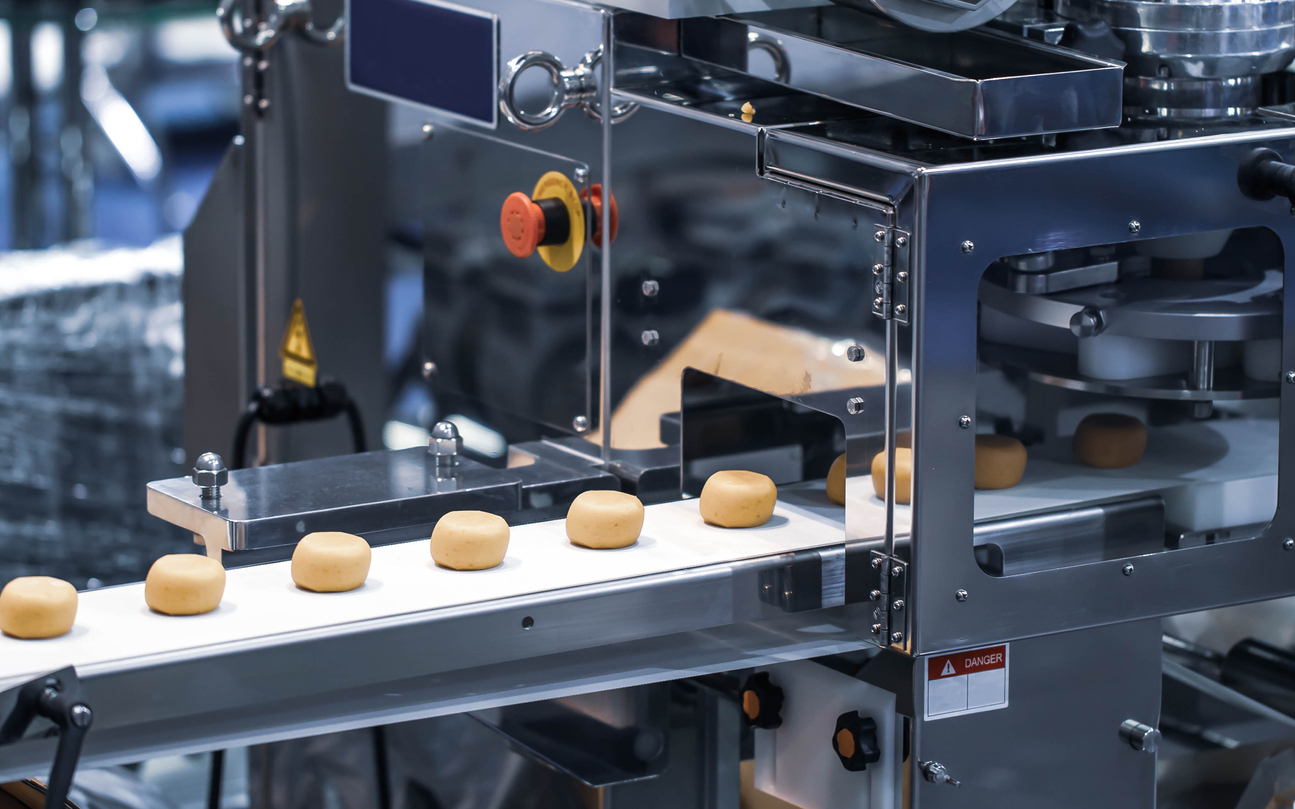From Farm to Table: The Role of Wigmore Trading in Enhancing Food Processing in Nigeria
From Farm to Table: The Role of Wigmore Trading in Enhancing Food Processing in Nigeria
As the demand for locally sourced, fresh and nutritious food continues to rise, the role of companies like Wigmore Trading in enhancing food processing in Nigeria has never been more important. From farm to table, their innovative approach is not only revolutionizing the way food is produced and consumed but also supporting local farmers and communities. Join us as we explore how Wigmore Trading is shaping the future of food processing in Nigeria and beyond.
Introduction to Wigmore Trading and their role in food processing in Nigeria
Introduction to Wigmore Trading and their Role in Food Processing in Nigeria
Nigeria, with its abundant natural resources and large agricultural sector, has the potential to become a major player in the global food processing industry. However, due to various challenges such as inadequate infrastructure, limited technology usage, and lack of access to finance, the country’s food processing sector has not reached its full potential. This is where companies like Wigmore Trading come into play.
Wigmore Trading is a leading importer and distributor of high-quality machinery and equipment for food processing industries in Nigeria. With over 20 years of experience, they have established themselves as a trusted partner for many food processors across the country. Their aim is to enhance the efficiency and productivity of food processing businesses by providing them with top-of-the-line equipment and excellent customer service.
The company offers a wide range of products that cater to different stages of food production including cleaning, sorting, peeling, cutting, cooking, packaging, and more. These products are sourced from renowned manufacturers across Europe and Asia who adhere to international quality standards. This ensures that their customers receive only the best-in-class equipment that can withstand the harsh operating conditions in Nigeria.
One of Wigmore Trading’s key strengths is their highly skilled team who are experts in understanding the specific needs of each customer. They work closely with their clients to provide tailored solutions that meet their requirements while also considering their budget constraints. This personalized approach has resulted in long-term partnerships with many food processors who rely on Wigmore Trading for all their machinery needs.
In addition to offering top-notch equipment, Wigmore Trading also provides technical support services such as installation assistance, training programs on how to use the machines effectively and after-sales maintenance services. These services ensure that customers get maximum value from their investment by prolonging the lifespan of their equipment.
Moreover, through continuous research and development efforts, Wigmore Trading stays up-to-date with advancements in technology and constantly introduces innovative products to the Nigerian market. This enables food processors to stay competitive in their industry by adopting the latest equipment that can improve their production processes.
Wigmore Trading plays a crucial role in enhancing food processing in Nigeria by providing high-quality machinery, personalized solutions, and excellent support services to its customers. Their commitment towards improving the efficiency and productivity of food processing businesses has made them a trusted partner in the industry, contributing to the growth of Nigeria’s economy.
Overview of the current state of food processing in Nigeria
Overview of the Current State of Food Processing in Nigeria
Nigeria is a country blessed with abundant natural resources, including fertile land and a favorable climate for agriculture. Agriculture accounts for about 22% of the country’s GDP and employs over 36% of the labor force (World Bank, 2020). Despite this, Nigeria struggles to meet its food demand due to inadequate food processing facilities and infrastructure.
Food processing is an essential aspect of the agriculture value chain as it involves converting raw agricultural products into processed or packaged goods. It adds value to raw materials, increases shelf life, improves food safety, and provides convenience for consumers. However, in Nigeria, most agricultural products are sold in their raw form due to a lack of sufficient processing facilities.
The current state of food processing in Nigeria is characterized by small-scale operations with low technology adoption. According to a report by the United Nations Industrial Development Organization (UNIDO), only about 10% of the country’s agricultural produce undergoes any form of industrial processing (UNIDO, 2018). This low level of food processing has resulted in high post-harvest losses estimated at $9 billion annually (Alliance for Green Revolution in Africa).
The limited presence and capacity of large-scale food processing companies also contribute to the current state. The few existing ones are concentrated in urban areas, making it challenging for farmers from rural communities to access them. As a result, many smallholder farmers resort to traditional methods such as sun-drying or smoking their produce for preservation purposes.
Additionally, inadequate government policies and support have hindered the growth and development of the sector. There is no specific policy framework addressing issues related to food processing despite its potential contribution towards reducing poverty and improving food security.
However, there have been recent efforts by both public and private sectors towards enhancing food processing in Nigeria. The Federal Government has established initiatives like the National Food Safety Management Committee aimed at enforcing standards for food processing and promoting exports. Private companies like Wigmore Trading have also taken the lead in investing in modern food processing technology and providing training for small-scale farmers.
While Nigeria has immense potential for food processing, there is still a long way to go in terms of infrastructure, technology adoption, and government support. Nevertheless, with the growing interest from both public and private sectors, there is hope for significant improvements in the near future.
Challenges faced by local food processors and how Wigmore Trading is addressing them
Local food processors in Nigeria face a multitude of challenges that hinder their ability to effectively produce and distribute high-quality goods. These challenges range from limited access to modern equipment and technology, to lack of proper training and infrastructure. As a result, many local food processors struggle to compete with larger companies and meet the growing demand for processed foods in the country.
One major challenge faced by local food processors is the lack of modern equipment and technology. In most cases, these processors rely on traditional methods of processing which are time-consuming, inefficient, and often result in lower quality products. This puts them at a disadvantage when compared to larger companies who have access to more advanced machinery and technology. As a result, many small-scale food processors are unable to produce goods at a competitive level or expand their operations.
Another challenge faced by local food processors is the lack of proper training and education on modern processing techniques. Many individuals involved in food processing may not have received formal education or training in this field, leading to subpar production methods that can affect product quality. Additionally, there is also a lack of knowledge about industry regulations and standards which can lead to issues with compliance.
Infrastructure also poses as an obstacle for local food processors. Poor roads, limited access to reliable electricity, and inadequate storage facilities all contribute to delays in production and distribution processes. This can lead to spoilage of perishable goods or damage during transportation, resulting in financial losses for these small-scale businesses.
Wigmore Trading recognizes these challenges facing local food processors in Nigeria and has taken steps towards addressing them. Through our partnerships with reputable international suppliers, we provide affordable access to state-of-the-art equipment such as industrial blenders, packaging machines, pasteurizers, among others. This allows local food processors to improve their production processes and increase their output while maintaining high-quality standards.
In addition, Wigmore Trading offers training programs aimed at equipping individuals involved in food processing with the necessary skills and knowledge to improve their production methods. Our training covers a wide range of topics, including food safety and hygiene, industry regulations, product development, and more. By empowering these processors with the right tools and knowledge, we are helping them overcome the challenges they face in their operations.
Moreover, Wigmore Trading has also invested in infrastructure development by building warehouses and cold storage facilities strategically located across the country. This allows for efficient storage and transportation of goods without compromising on quality.
Local food processors in Nigeria face various challenges that hinder their growth and competitiveness. However, through its commitment to providing access to modern equipment, training programs, and improved infrastructure, Wigmore Trading is playing a crucial role in enhancing food processing in Nigeria. By addressing these challenges head-on, we are working towards achieving our goal of promoting sustainable economic growth within the Nigerian food industry.
Impact of Wigmore Trading’s machinery on food processing in terms of efficiency, quality, and safety
Wigmore Trading’s machinery has had a significant impact on food processing in Nigeria, particularly in terms of efficiency, quality, and safety. The use of modern and advanced machinery has revolutionized the way food is processed in the country, leading to increased production and improved overall quality.
Efficiency:
One of the main benefits of Wigmore Trading’s machinery is its ability to increase the efficiency of food processing. With traditional methods, food processing was a time-consuming and labor-intensive task. However, with the introduction of automated machines such as peeling machines, grinding machines, and sorting machines, this process has become much faster and more efficient. These machines can process large quantities of raw materials quickly and accurately, reducing human error and increasing productivity. This has not only helped businesses save time but also reduced their production costs.
Quality:
Wigmore Trading’s machinery is known for its precision and consistency in delivering high-quality products. The use of advanced technologies such as air separation systems, color sorters, and optical sorters ensures that only the best quality raw materials are used in the food processing industry. This leads to improved taste profiles as well as longer shelf life for processed foods. Additionally, these machines are designed to minimize human contact with the product during processing, reducing contamination risks and ensuring better hygiene standards.
Safety:
Food safety is a top priority for Wigmore Trading when it comes to their machinery. Their equipment is designed to meet international health and safety standards set by organizations such as ISO (International Organization for Standardization) and HACCP (Hazard Analysis Critical Control Point). These measures ensure that all stages of food processing are carried out under strict hygiene regulations to prevent any potential health hazards. By using state-of-the-art packaging technology along with high-quality materials for packaging products, Wigmore Trading guarantees that their clients receive safe-to-consume products every time.
Wigmore Trading’s machinery has had a profound impact on food processing in Nigeria. The efficiency, quality, and safety standards set by this company have not only improved the production process but also enhanced the overall quality of processed foods. With continuous innovation and advancements in technology, Wigmore Trading is playing a crucial role in improving the food industry in Nigeria and helping to bring safe, high-quality products from farm to table.
Case studies of successful partnerships between Wigmore Trading and Nigerian food processors
Wigmore Trading has been at the forefront of revolutionizing food processing in Nigeria by partnering with local food processors. Through these partnerships, Wigmore Trading has been able to provide support and resources that have helped these processors thrive in the competitive market.
One such successful partnership is with a small-scale cassava processor based in rural Nigeria. Before partnering with Wigmore Trading, this processor faced several challenges, from sourcing raw materials to accessing markets for their finished products. With the help of Wigmore Trading, they were able to establish a steady supply chain for high-quality cassava tubers and other necessary equipment. This not only streamlined their production process but also ensured consistent quality in their final product.
Additionally, through Wigmore Trading’s extensive network and market expertise, this processor was able to secure contracts with large supermarkets and distributors across the country. This provided them with a sustainable market for their products and significantly increased their revenue.
Another success story is that of a tomato paste producer who had been struggling to maintain quality standards due to limited access to proper packaging materials. Through its partnership with Wigmore Trading, this company was able to source high-quality packaging materials at affordable prices. As a result, their product gained wider acceptance among consumers and led to an increase in demand.
Furthermore, by tapping into Wigmore Trading’s vast knowledge of export regulations and requirements, this tomato paste producer was also able to expand its reach beyond the Nigerian market. Today, they have successfully exported their products to several African countries and are on track to enter the global market as well.
These are just two examples of how partnerships between Wigmore Trading and Nigerian food processors have yielded positive results for all parties involved. By providing essential resources such as raw materials, equipment, packaging materials, and access to markets both locally and internationally, Wigmore Trading has played a crucial role in enhancing the competitiveness of these food processors.
Moreover, through continuous training programs organized by Wigmore Trading, these partnerships have also contributed to improving the skills and knowledge of local food processors. This has not only resulted in the production of high-quality products but has also created employment opportunities, especially in rural areas.
Wigmore Trading’s successful partnerships with Nigerian food processors highlight the company’s commitment to supporting and developing the local food processing industry. By providing necessary resources and expertise, these partnerships have not only benefitted individual companies but have also had a positive impact on the overall growth of the sector.
Future plans for expanding and improving food processing in Nigeria with the help of Wigmore Trading
Future plans for expanding and improving food processing in Nigeria with the help of Wigmore Trading are focused on increasing efficiency, quality, and accessibility in order to meet the growing demand for processed foods. As the leading supplier of agricultural products and equipment in Nigeria, Wigmore Trading is committed to supporting the development of a robust food processing industry that can meet both domestic and international needs.
One major area of focus for Wigmore Trading is expanding its range of products and services offered to food processors. This includes sourcing new, high-quality machinery from reputable manufacturers around the world that will increase productivity and reduce waste. By providing access to modern equipment such as blenders, mixers, grinders, and packaging machines, Wigmore Trading aims to help food processors improve their production processes while also reducing costs.
In addition to equipment supply, Wigmore Trading plans to establish partnerships with local farmers and producers to ensure a steady supply of raw materials for food processing. This not only supports local agriculture but also enables better control over the quality and traceability of ingredients used in processed foods. By working closely with farmers, Wigmore Trading can also provide training on sustainable farming practices that will result in higher quality crops.
Another key aspect of future plans for enhancing food processing in Nigeria is through technological advancements. This includes exploring opportunities for incorporating automation and digitalization into production processes, which can increase efficiency while maintaining quality standards. With advancements such as artificial intelligence (AI) becoming more prevalent in the food industry globally, it is crucial for Nigerian processors to adopt these technologies in order to remain competitive.
Furthermore, Wigmore Trading aims to support small-scale food processors by offering business development services such as marketing strategies and financial planning assistance. Through these efforts, small businesses can have better access to markets both domestically and internationally.
Through strategic partnerships with stakeholders at all levels – from farmers to large-scale processors – Wigmore Trading envisions a future where Nigeria’s food processing industry is thriving, producing high-quality, safe, and nutritious products. By providing access to modern equipment, supporting technological advancements, and fostering business development, Wigmore Trading is dedicated to playing a significant role in the growth and improvement of food processing in Nigeria.
–
The Role of Wigmore Trading in Enhancing Food Processing in Nigeria
Wigmore Trading Company is playing a significant role in the enhancement of food processing in Nigeria. With its establishment in 2012, Wigmore has become a leading player in the food processing sector and has been at the forefront of promoting local agriculture and food production.
One of the key ways that Wigmore Trading is enhancing food processing in Nigeria is by working directly with farmers. The company sources its raw materials from local farmers, providing them with a guaranteed market for their produce. This has not only helped to boost local agriculture but has also created sustainable livelihoods for many small-scale farmers.
In addition to sourcing from local farmers, Wigmore also works closely with them to improve their farming techniques and increase their yields. This includes providing training on modern agricultural practices, as well as access to high-quality seeds and fertilizers. By improving the quality and quantity of produce from these farmers, Wigmore is ensuring a steady supply of raw materials for food processing companies.
Moreover, Wigmore Trading has invested heavily in technology and equipment to enhance food processing methods. The company uses state-of-the-art machinery to process fruits, vegetables, grains, and other crops into various products such as juices, jams, sauces, and flours. These products are then distributed both locally and internationally under various brand names.
Furthermore, Wigmore plays an essential role in the distribution of processed food products across Nigeria. The company has established a strong distribution network that ensures its products reach every corner of the country efficiently. This has made it easier for consumers to access high-quality processed foods at affordable prices.
Apart from supporting local agriculture and enhancing food processing methods, Wigmore Trading also contributes significantly to job creation in Nigeria. As it continues to expand its operations across different regions of the country, more job opportunities are being created for people at all levels – from farm workers to factory employees and sales representatives.
Wigmore Trading has been a game-changer in the food processing industry in Nigeria. By promoting local agriculture, investing in technology and distribution networks, and creating job opportunities, the company is playing a crucial role in enhancing food processing and contributing to the economic growth of the country.








Comments are closed.